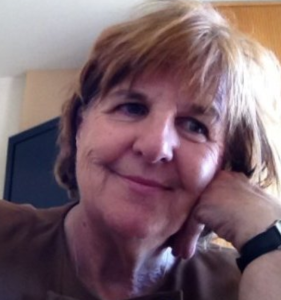 I sometimes wonder if the UK government realises how much general practices in this country accomplish in comparison to their counterparts in Europe and the United States.
I sometimes wonder if the UK government realises how much general practices in this country accomplish in comparison to their counterparts in Europe and the United States.
There was a time, 20 or 30 years ago, when there was not much to choose between GPs in the UK and family doctors in other countries, apart from the fact that GP surgeries were usually open for considerably longer than the two to four hours a day that was normal in Europe, and that GPs here did house calls, which were becoming a rarity in Europe and the US.
However, general practice in the UK is now very different from the practices of many of our European colleagues. In a recent report, the American think tank the Commonwealth Fund placed the NHS at the top of the countries they studied, for the excellence and cost effectiveness of its health system.
UK general practice is the largest component of this high rating, and it is because of GPs’ generalist skill and expertise that chronic disease, for instance, is dealt with so effectively in the UK. The Quality and Outcome Framework (QOF), introduced in the 2004 contract, not only incentivised GPs to manage chronic disease to a high standard, but was described by one US commentator as “an initiative to improve the quality of primary care that is the boldest such proposal attempted anywhere in the world.” This commentator, Martin Roland, suggested that “in one leap the NHS has vaulted over anything being attempted in the United States, the previous leader in quality improvement initiatives.”
GPs in this country cover what Aneurin Bevan promised when he spoke of care “from cradle to grave.” They have an extended gatekeeper role, which reduces duplication of investigations, uses specialists only when a specialist input is appropriate, and which significantly reduces costs. For instance, they see women for antenatal and postnatal checks, as well as completing the new baby examinations. In most European countries, all of these would be done in hospitals.
They see all children, both the under 4s, who are referred to paediatricians in Europe, and the under 16s, who may also be seen by paediatricians in other countries. They see all women with gynaecological problems—carrying out investigations and treatments, which in other countries would be done in hospitals. And they keep, as their patients, the elderly who are resident in nursing homes; although in other countries these patients are under the care of community geriatricians, or in the Netherlands under nursing home doctors.
Most significantly, since the introduction of the QOF, they now take over the care of all those with chronic disease. All those patients that used to be seen in hospital clinics, and who still are in Europe—those with diabetes, heart disease, osteoporosis, thyroid dysfunction, prostate cancer, rheumatic disease, asthma, and chronic pulmonary disease—are now investigated, reviewed, prescribed for, and managed within general practice.
It is largely this expansion of the GPs’ role, this shift from secondary care review to primary care responsibility, which has seen the steady increase in GP workload, rising in the last five years from 300 million consultations a year to 340 million a year.
So, should UK GPs go back to the old days? Should they, like their European colleagues, refer chronic disease management back to secondary care? Is it better to let patient choice be the deciding factor, and allow self referral for everyone, as many EU nations do?
Or should we pride ourselves on the fact that we have fewer doctors and beds for every 1000 people than almost anywhere else in Europe, but still have similar morbidity and mortality data? And will the UK government realise that a well funded and robust primary care system is the foundation of a functioning health economy—and not only invest substantially in primary care, but also value the work of GPs?
Mary McCarthy has been a GP, based in Shropshire, for 30 years. She is also a hospital practitioner in diabetes and has the following roles too: elected representative for Shropshire, North Staffs, and South Staffs on the BMA General Practitioners Committee; BMA head of delegation to UEMO (European GP Group); and a fellow of the Royal College of General Practitioners (RCGP) and board member of its Midland Faculty.
Competing interests: The author has no further relevant interests to declare.
